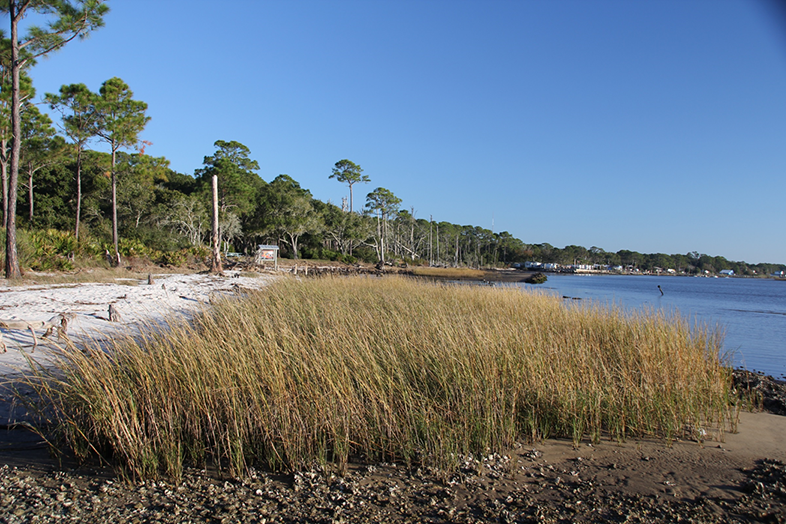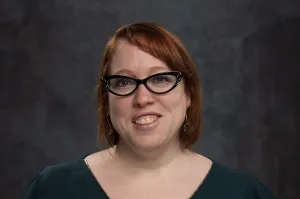By Carrie Schuman, Conservancy of Southwest Florida
Hurricanes Debby, Irma, Ian, Helene and Milton are “five good reasons” the Conservancy of Southwest Florida hosted “Working with Nature: Nature-Based and Hybrid Solutions for Resilient Communities” last month, said Rob Moher, president and CEO of the Conservancy.
In fact, the “Working with Nature” symposium was originally scheduled for Oct. 7 and had to be postponed due to rapidly intensifying Hurricane Milton.
In his opening remarks to the more than 100 virtual and in-person attendees, Moher also noted the impact on Southwest Florida of extended heat events, sea level rise, heavy rain events, degraded water quality and more. “Climate issues are not strictly environmental issues, that’s missing the mark. They are community viability issues.”

During the symposium, speakers presented case studies of successful nature-based and hybrid resiliency projects from around Florida, with discussions about how to successfully employ these strategies and important lessons learned.
Nature-based solutions (such as mangrove forests, salt marshes and beach dunes) or hybrid solutions, which combine nature-based elements with engineered options (such as seawalls, levees and culverts) can address the challenges Moher outlined.
“We are racing to keep up with the challenges,” Moher said. “There are no single solutions. We need to have multiple lines of defense. We need to have long-term, sustainable strategies.”
Incorporating these options into local adaptation planning can support our local nature-based economy, provide significant amounts of ecological services our communities depend on, and contribute to a multiple lines of defense approach to managing risk.
Speakers represented multiple organizations including Florida Sea Grant, Naples Botanical Garden, the city of North Miami, Gainesville Regional Utilities, Wetland Solutions, Ecosphere Restoration Institute, Coastal & Heartland National Estuary Partnership, Cummins Cederberg Coastal & Marine Engineering, the University of Florida, Environmental Defense Fund, Palm Beach County and the U.S. Forest Service.
Takeaways from the symposium included the importance of finding the right site-specific solutions by having multi-disciplinary conversations to bring in innovative ideas for how to protect nature so that it thrives for the future while also providing protection for communities. There was also rich discussion about resources and impediments to pursuing these types of projects.

For instance, Thomas Ankerson — professor emeritus for the University of Florida Levin College of Law and director emeritus, Florida Sea Grant Legal Program — noted, laws, regulations and policies haven’t yet caught up to rapid changes in climate and the adoption of nature-based strategies for addressing these impacts.
“The current statutory and regulatory framework for what we’re trying to accomplish here (with nature-based solutions), doesn’t quite work,” he said. “Doesn’t work as well as it could and should.” He highlighted some of the opportunities for change and reinterpretation to existing legal frameworks to protect nature while leveraging its resilience.
We hope the enthusiastic response to the seminar will foster a sustained and meaningful conversation about how we can continue to explore and bring the best, balanced solutions forward in response to our changing climate. We invite the community to be part of the conversation by visiting conservancy.org/our-work/climate-change/, with general climate resources and information on projects and speakers from the symposium.
For more information, the Nature Center’s Climate Change Gallery in the John & Carol Walter Discovery Wing focuses on the intensification of storms, ocean acidification and habitat protection. A spherical digital display system “Science on a Sphere” introduces visitors to the impacts of climate change locally and around the world, with a daily talk, “Our Changing Planet,” using the sphere offered for Nature Center visitors.
Carrie Schuman, Ph.D., is the climate resilience advisor at the Conservancy of Southwest Florida, which remains committed to understanding the opportunities for resilience for nature and Southwest Florida’s communities, through education, policy, research and advocacy. This opinion piece was originally published by the News-Press, which is a media partner of The Invading Sea.
Sign up for The Invading Sea newsletter by visiting here. To support The Invading Sea, click here to make a donation. If you are interested in submitting an opinion piece to The Invading Sea, email Editor Nathan Crabbe at ncrabbe@fau.edu.



